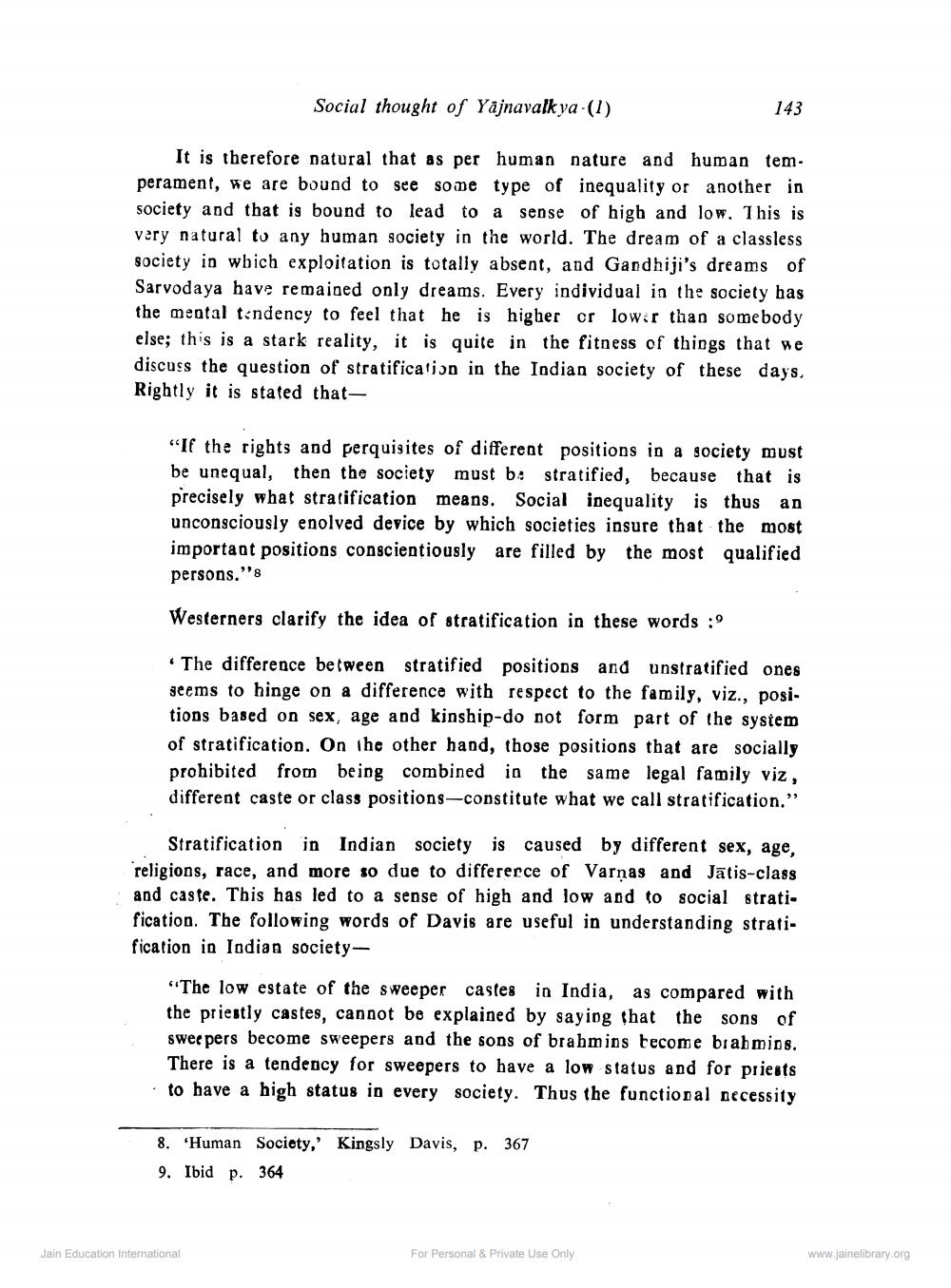________________
Social thought of Yajnavalk ya-(1)
143
It is therefore natural that as per human nature and human temperament, we are bound to see some type of inequality or another in society and that is bound to lead to a sense of high and low. This is very natural to any human society in the world. The dream of a classless society in wbich exploitation is totally absent, and Gandhiji's dreams of Sarvodaya have remained only dreams. Every individual in the society has the mental tendency to feel that he is higher or low:r than somebody else; this is a stark reality, it is quite in the fitness of things that we discuss the question of stratification in the Indian society of these days, Rightly it is stated that
"If the rights and perquisites of different positions in a society must be unequal, then the society must b: stratified, because that is precisely what stratification means. Social inequality is thus an unconsciously enolved device by which societies insure that the most important positions conscientiously are filled by the most qualified persons.'s
Westerners clarify the idea of stratification in these words ::
• The difference between stratified positions and unstratified ones seems to hinge on a difference with respect to the family, viz., positions based on sex, age and kinship-do not form part of the system of stratification. On the other hand, those positions that are socially prohibited from being combined in the same legal family viz , different caste or class positions-constitute what we call stratification.”
Stratification in Indian society is caused by different sex, age, religions, race, and more so due to difference of Varnas and Jātis-class and caste. This has led to a sense of high and low and to social stratification. The following words of Davis are useful in understanding stratification in lodian society
"The low estate of the sweeper castes in India, as compared with the priestly castes, cannot be explained by saying that the sons of swee pers become sweepers and the sons of brahmins become brahmins.
There is a tendency for sweepers to have a low status and for priests · to have a high status in every society. Thus the functional necessity
8. 'Human Society,' Kingsly Davis, p. 367 9. Ibid p. 364
Jain Education International
For Personal & Private Use Only
www.jainelibrary.org




